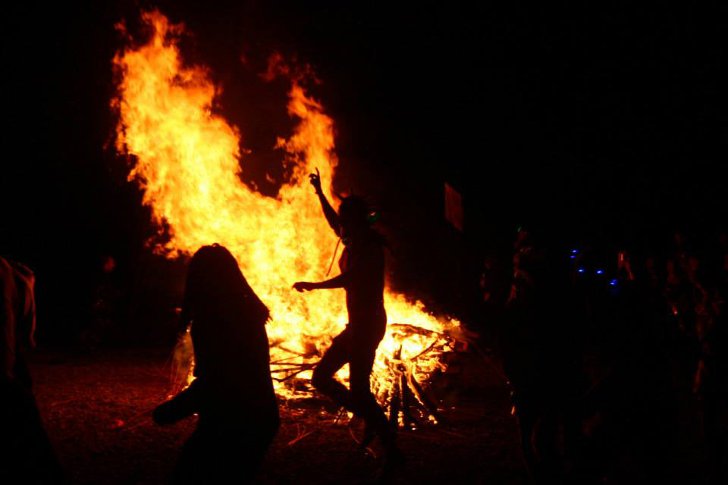Burning Man is an experiment in community, art and radical self-expression. First held in 1986 as a small private function, it has since grown to become the world’s most famous counterculture event. From the last Sunday in August to the first Monday in September, a part of Black Rock Desert is transformed into Black Rock City where people find various ways to express themselves and create art. The festival culminates with the symbolic burning of a giant wooden effigy that has given Burning Man its name.
Over the years, Burning Man has welcomed participants from all over the world. Some of them decided to bring the spirit of the festival to their home countries and started local Burning Man events. Some are big and boisterous while others are more intimate, but all events share one common trait: they are a celebration of human creativity and radical self-expression.
UK’s Burning Nest is a relatively small event, and this is a deliberate choice. The festival doesn’t sell tickets, but festival-goers are required to register and purchase membership to the event. According to Nest’s team, members contribute to the feathering of the Nest. The festival also doesn’t have either visitors or spectators. It has only participants who create and shape the event. All members are invited to participate in the creation and enjoy its results.
Like all Burning Man events, Burning Nest is guided by a set of principles, of which there are eleven: participation, radical self-reliance, leave no trace, radical inclusion, immediacy, education, communal effort, civic responsibility, no commerce, self-expression, and gifting. Ten of these principles are shared by almost all Burning Men events, and the 11th one (“Education – Each One Teach One”) was borrowed from the AfrikaBurn festival.
Burning Nest is held at a secret location in Wales or England. Only registered members get to know the exact coordinates. The organizers provide a location where festival-goers can camp, security, and medical staff, but the rest is up to participants according to the radical self-reliance principle. Many participants team up to create Theme Camps because it’s always easier to make something new when you’re surrounded by friends.

Photo: burningnest.co.uk




